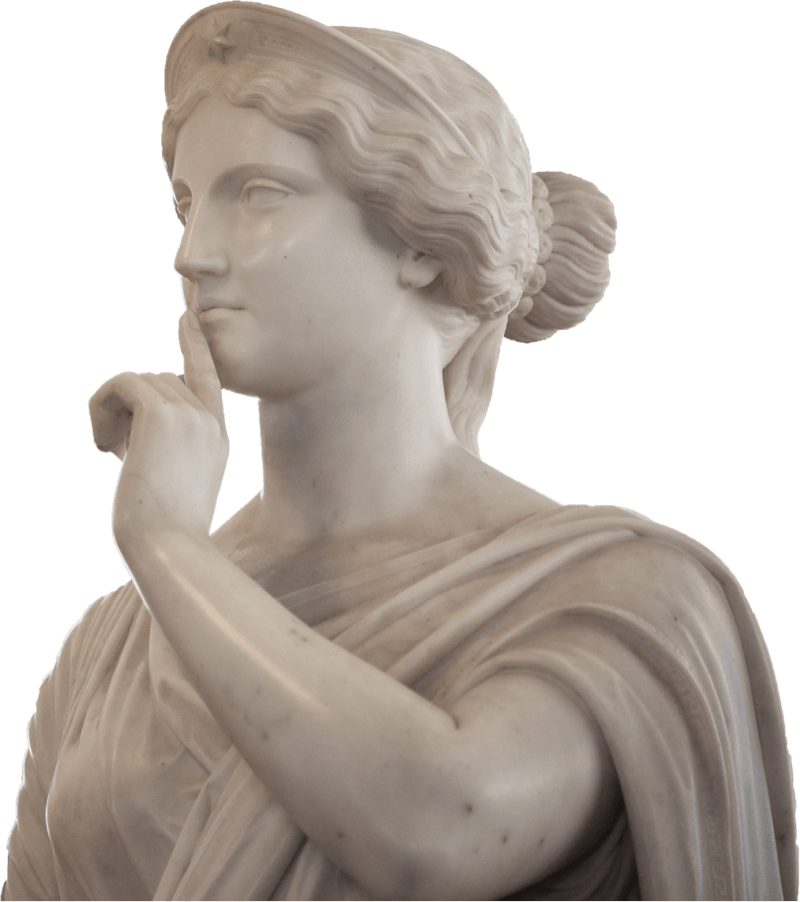There’s a new piece of furniture in the Reading Room, an ornately carved library table with a motif of acanthus leaves, that’s right at home with our carved bookcases.
It was likely made by a student from the woodcarving school of father-and son Henry and William Fry, who immigrated to Cincinnati from England in the 1850s. It comes from the collection of the late Alan Fry, donated to the Mercantile Library by his wife Patricia and daughter Laura. Henry Fry is Laura’s great, great, great grandfather. William’s daughter, who is Laura’s namesake, was the carver, artist, and teacher Laura Anne Fry, who worked at Rookwood Pottery.

Cincinnati’s art-carving tradition was important for both its quality, which led to national prominence, and the progressive ideals that these artists, devotees of the Aesthetic Movement, embodied in their work. Like the Arts and Crafts movement to which it was a precursor, the Aesthetic Movement celebrated hand-made work as an antidote to the industrialization that was choking cities, and, its members believed, stultified creativity, says Laura Fry, who is also Senior Curator of Art at Tulsa, Oklahoma’s Gilcrease Museum.

Henry and William were contemporaries of and sometimes collaborators with woodcarver Benn Pitman who, late in life, married painter Elizabeth Nourse’s twin sister, Adelaide. As “radical socialist Swedenborgians,” Laura says, the Frys’ beliefs included gender equality, and their school attracted many women who saw in the craft an opportunity to improve their social standing with a profession and an income. That same progressive zeitgeist drove Rookwood pottery where Laura Anne Fry went on to work between 1881 and 1887. The Frys’ popularity with female students was attributed to one of their early major commissions: the interior of Maria Longworth Storer’s home on the Longworth estate, “Rookwood”. For a deep-dive into Cincinnati’s art-carving heritage, check out Cincinnati Art-Carved Furniture and Interiors edited by Jennifer L. Howe (Ohio University Press, 2003.)
By the late 19th Century Cincinnati was a major artistic hub. Thanks to the Art Academy of Cincinnati, painters and sculptors were coming here to study. It was also a place, Laura says, “where women were really active in the arts.” Woodcarved works by female students of the Frys and Pittman were exhibited at the 1876 Centennial exhibition to showcase women’s skill in a traditionally male dominated field. Another budding woodcarving student went on to cast a long shadow over the arts in Cincinnati: Clara Chipman Newton, niece of Mercantile Librarian John M. Newton. Clara was a friend and confidante of both Maria Storer Longworth and Maria’s competitor and “frenemy”, M. Louise McLaughlin. The library table now stands near The McLaughlin book case, donated by the latter’s father. All four women would have spent time in the Mercantile. This period library table is representative of the web of productive relationships in this hotbed of creativity. It speaks of the value of work to elevate the maker, of Cincinnati’s long legacy as a progressive place of creativity and learning.
There is an inscription inside one of the drawers that seems to say “116 6th Avenue, Dayton” and “O’Fallon”, which was the location of the Bellevue Hotel in Dayton, Kentucky. Howe’s book mentions that the Frys claimed pupils from “’from far and near,” including in the mid 1870s, “sixteen women from Dayton.” (Howe, p.38) Could he have meant from across the river? Little can be said for certain about the maker of this library table. Such works were seldom signed, Laura says, and the Frys, unlike Pitman, didn’t keep records.
Was its maker a woman?
“Oh it’s very likely,” Laura says. “You know we can’t say for certain, but I’d give it at least a fifty-percent chance.”
-Cedric Rose
Join Today
Join the Library


Mon - Tue - Wed - Thu - Fri }9:00am – 5:00pm
Sat }ClosedSun }Closed
Find Us
414 Walnut St. 11th Story
Cincinnati, OH 45202
(513) 621 - 0717
The Mercantile Library ©2024, All rights reserved. / Privacy Policy